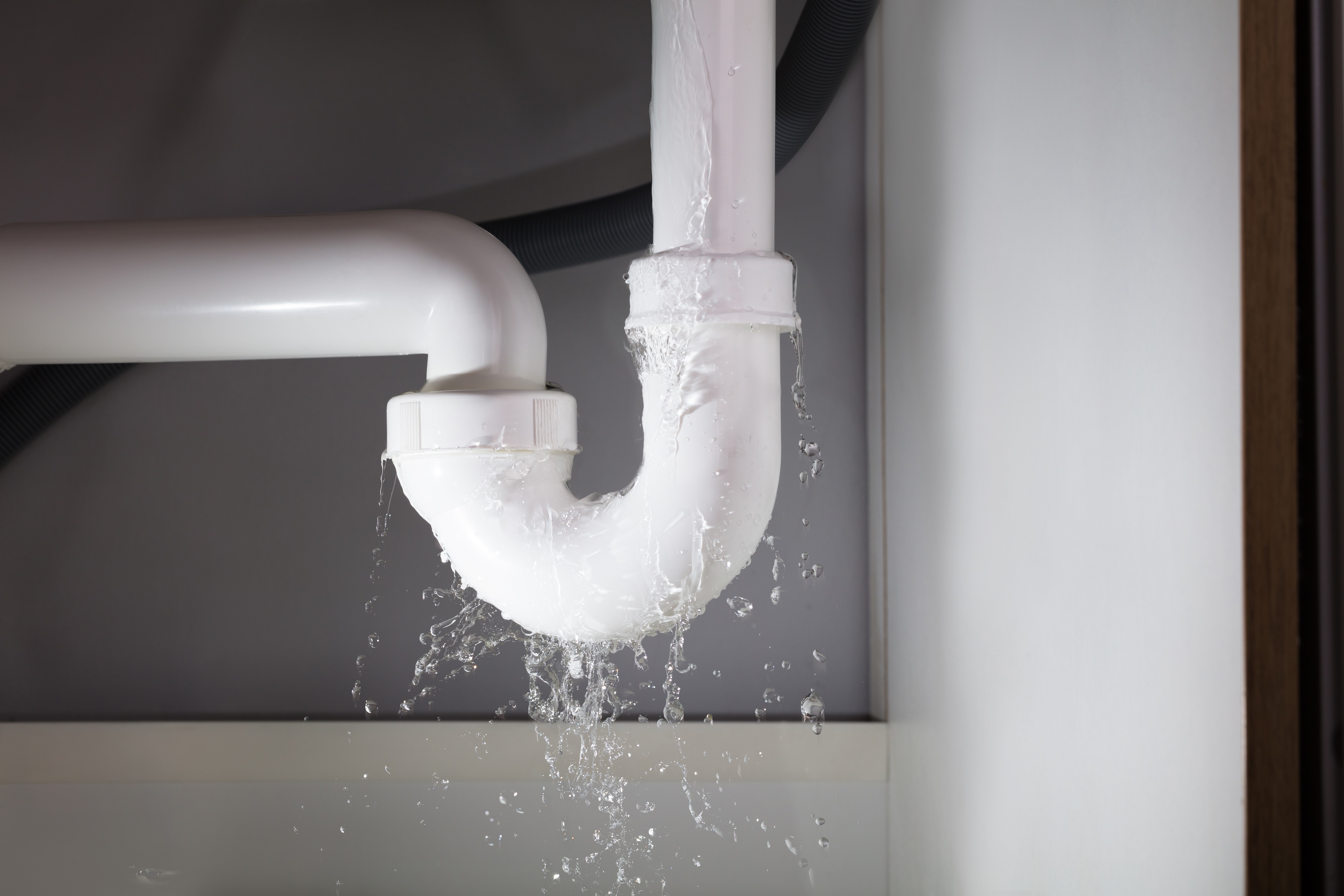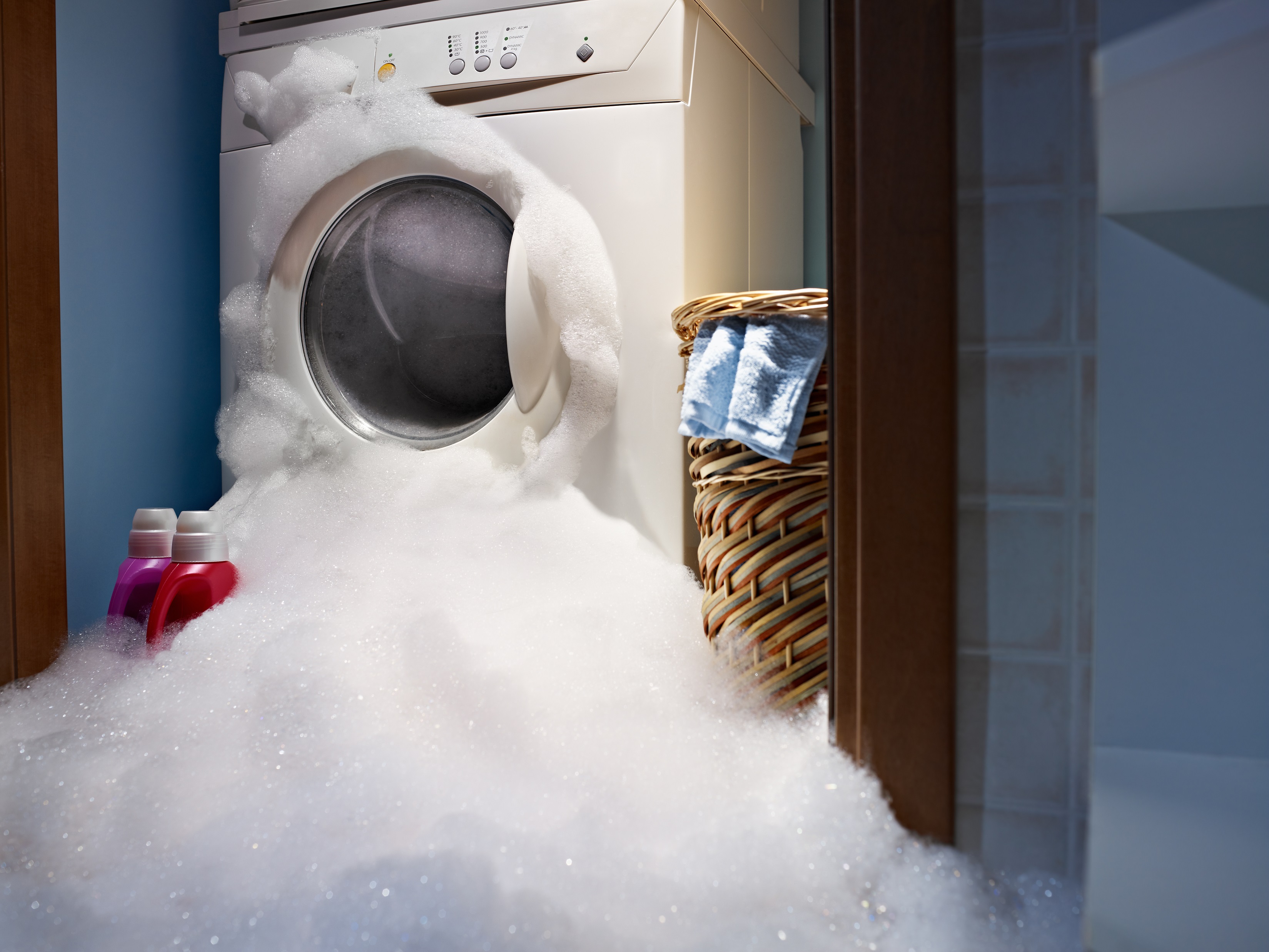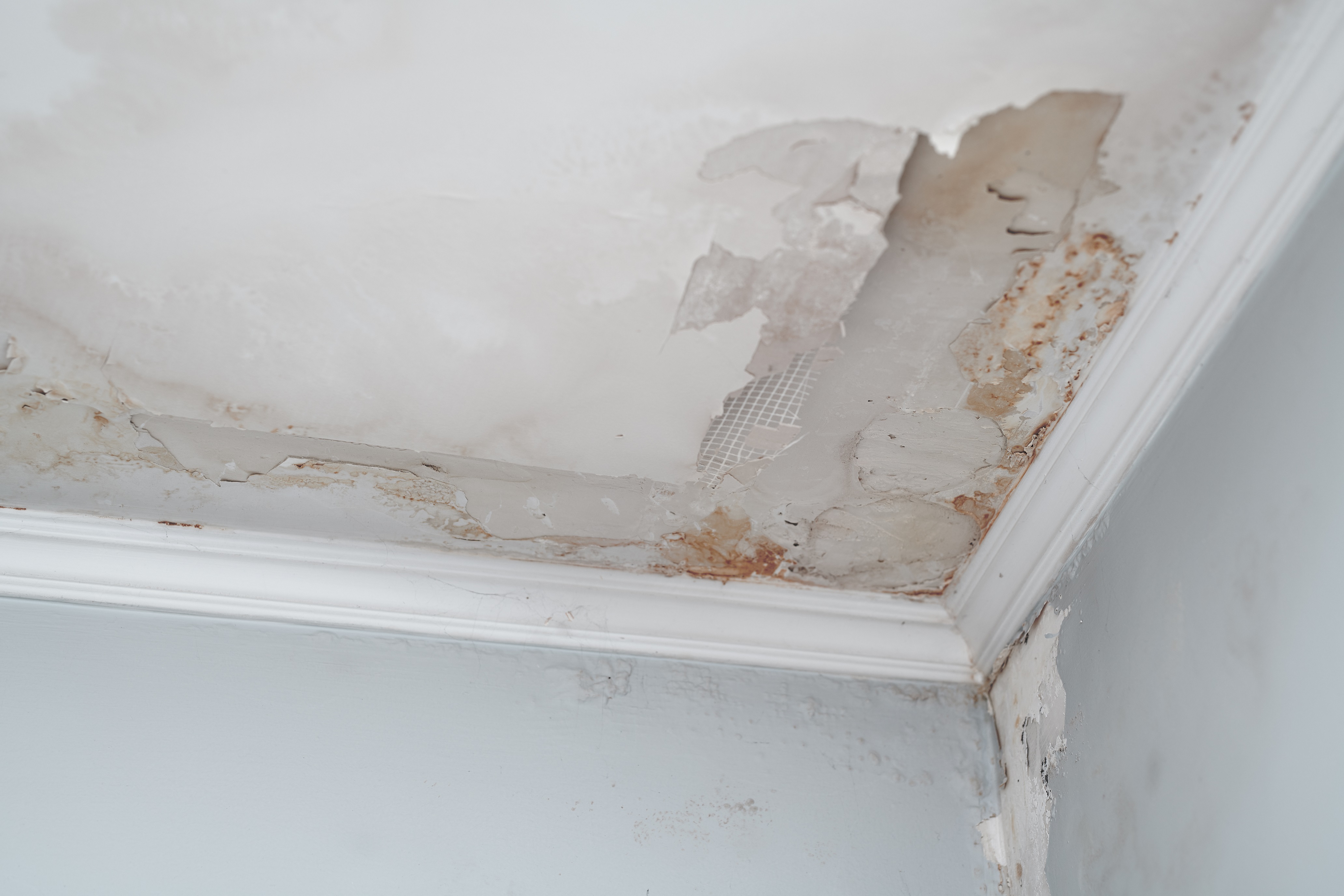Water damage from pipes and drains:
César bought a town house in Ettelbruck. The sanitary installations dated back to the 1970s, so he called in a tradesman to change his entire bathroom.
"We were with my wife on the ground floor when we saw a torrent of water rushing down the stairs from our bathroom on the 2ᵉ floor! We were totally panicked..."
In this case, the leak was the result of work by a tradesman. It was therefore up to the plumber's third party liability insurance to cover the potential damage.
"Fortunately, our tradesman quickly stopped the leak. It looked worse than it was, because after draining the water and mopping up the floors, there was no real damage.
In principle, when the building's pipes and drains are the cause of water damage, the repair costs are paid by the owner's insurer (or that of the co-ownership in the case of a condominium).
If in doubt, contact your insurer, who can appoint an expert to determine the origin of the leak and therefore liability.

Leaks caused by household appliances:
Short programme. 30 degrees. Start. Beep! The washing machine starts. You're off to do what you have to do. 30 minutes later, you're back in the kitchen to make yourself a coffee. As soon as you've pushed open the door, splash, you step into a puddle. The machine is leaking.
Washing machines and dishwashers are a frequent cause of water damage. Poorly connected pipes, worn joints and litres of water can spill onto your floor in a matter of minutes.
In the case of water damage caused by household appliances, the occupant (the tenant) is responsible.
The tenant's insurance will therefore cover the costs associated with this water damage with regard to the owner: damaged floor, warped built-in kitchen units, etc. The tenant may also be entitled to compensation for their own furniture if it has been damaged.

Water damage due to seepage:
Only 10 minutes to go and that pumpkin bake will finally be cooked. Sitting in your kitchen, your eyes starring into the distance, you scan the ceiling before becoming intrigued by a dark stain. But what is it?
This is what’s known as seepage. It can occur on walls or ceilings and can result from cracks, leaking pipes, leaking roofs or windows, blocked gutters, etc.
This is what happened to William. His terraced house is lined with gutters. When neither he nor his neighbour paid any attention, the gutter became blocked by a pile of dead leaves and pigeon feathers (which regularly nest in these gutters).
"We didn't know what to do. And we didn't understand what was causing the problem. I called my insurer to report the claim. He was very reassuring. He sent us an expert who identified the cause of the seepage. And we were compensated for the repairs.???
While it was a matter of all’s well that end’s well for William, it's important to remember that as an owner or tenant, you are responsible for the upkeep of your apartment or house.

Maintenance obligations of the tenant and owner
The owner must ensure that the property complies with health and safety standards. For example, it is the owner's responsibility to ensure that the roof and outside walls are watertight.
Tenants are responsible for maintaining the property in good condition. This means carrying out minor repairs such as replacing seals in sanitary fittings, unclogging a clogged washbasin trap, etc., and reporting any major problems to the owner without delay.
If water damage occurs, you should contact your insurer as soon as possible to make a claim.
What should you do in the event of water damage?
First of all, turn off the water supply and mop up as quickly as possible. Next, notify your neighbours to check that they haven’t been affected by the leak. Then call your insurer to report the damage, and the owner if you’re a tenant. If you are a co-owner, inform the property manager.
Whatever water damage situation you encounter, your insurer is there to advise you.






